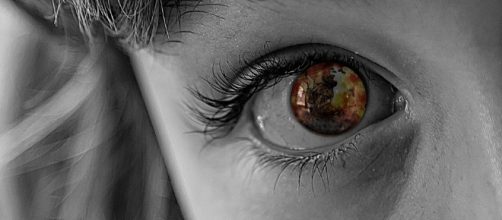In the last two years, the world has experienced the greatest humanitarian crisis it has witnessed since the Second World War. Millions of people fleeing devastation, persecution and conflict in their home countries including Syria, Afghanistan and Somalia have made dangerous journeys to neighbouring countries and Europe to seek refuge. More than half the now estimated 21 million people fleeing are children and many are unaccompanied, separated from family and carers. These children have experienced violence and trauma, including witnessing the loss of family members.
Some of the children become separated during the long journeys and some are sent alone with traffickers by parents desperate for their safety. Lacking legal routes of passage, at the hands of traffickers, they are subjected to inhumane conditions, abuse and torture.
The dire situation in refugee camps
In the camps all across Europe, living conditions are inadequate, with limited access to shelter, clothing and food supplies. With rising numbers, many processing centres have become detention centres violating international human rights legislation. The Greek islands, for example, are becoming known as the 'Prison' islands because thousands, including children, are detained behind barbed wire and locked up in small and dirty spaces.
The Greek interior minister Pangiotis Kouroublis has compared living conditions in the Idomeni camp on Greece's border with Macedonia to a Nazi concentration camp. Doctors Without Borders (Medicins Sans Frontieres) have treated babies for exposure to tear gas and 10 year old children for rubber bullet wounds. In the UK, one 15 year old Afghan boy who was imprisoned in a detention centre upon the authorities' discovery of him in a lorry, describes being treated no better than an animal.
The EU's response
According to Article 22 of the United Nations Convention on the Rights of the Child, a child refugee must receive sanctuary. This is not being enforced: governmental authorities in Europe are not attempting to identify and process the cases of unaccompanied children to ensure they reach safety.
This work is being done by volunteer organisations and NGOs such as Citizens UK and Help Refugees. Children who have entered Europe and have family members residing in another part of Europe are allowed to be reunited under the EU's Dublin III regulation, however this is such a lengthy process that many children lose hope and disappear.
In the UK, the new Dubs law allows unaccompanied children without family in the UK to be resettled, but very few children have as yet been brought here under this program. The deal agreed between the EU and Turkey in March has closed Europe's borders to anyone arriving illegally into Greece. Although this rule is not supposed to apply to children, in reality its enforcement in their case remains unclear, with the UK, for example, not allowing any children arriving after March 20 into consideration.
The purpose of the agreement is to put an end to illegal passage, but legal experts worry that it increases the problem: without extending immigration permissions and giving children legal routes into Europe, they are forced into dangerous risks.
Children are innocent victims of the conflicts and crisis. If, as according to international humanitarian law, their safety is imperative beyond all rules and politics, it is time for governmental authorities to comply.

